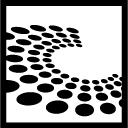dc8 - 1.1
DebConf8
Super Cow Powers Included
| Speakers | |
|---|---|
|
|
Andreas Tille |
| Schedule | |
|---|---|
| Day | DebConf day 6 (2008-08-15) |
| Room | Salon del mar |
| Start time | 18:00 |
| Duration | 01:00 |
| Info | |
| ID | 243 |
| Event type | bof |
| Track | DebConf Unofficial |
| Language | en |
Debian-Science
Turning Debian into the distribution of choice for scientists

The huge pool of packaged software inside Debian has the consequence that it also contains a large number of software which is used in day to day work of scientists. But the pure fact that packages are available is not enough to attract scientist who frequently tend to so called "easy to install" distributions and just are not aware which profit they might gain from Debian. Debian-Science has the goal to make Debian really attractive for scientists.
After a talk at DebConf 5 in Helsinki three years ago the Debian-Science mailing list[1] was created and there is a Wiki page[2]. It is basically about adding scientific FLOSS software to the Debian package pool. The more than six year experience in the Debian-Med project has shown that just adding packages to the Debian pool is nice but users deserve more than just packaged software.
Debian does a poor job in advertising the technically good job that is done. Many users do not have an idea about the available software inside Debian featuring a high level of quality and robustness. It is observed quite often that scientists just choose a distribution that claims to be "easy to use" and once they have got a nice shiny desktop environment they start to compile the software they need for day to day work from scratch.
So the task for a Debian-Science project is to make Debian the distribution of choice for scientist which includes proper advertising (i.e. listing software packages that are useful for scientific work), reasonable preselection of packages, convey inter-package relations - in short: Turning Debian into a scientific workbench that scientists are keen on using.
From a technical point of view the Custom Debian Distribution framework could be helpful to approach this goal. It simplifies the the task to care about scientific software inside Debian in an organised manner. Currently there is no structure in the scientific packages inside Debian - they just exist.
In principle a general science CDD is probably not the best solution and a more fine grained structure would do better. The problem is that in fact there is nobody who currently wants to do the grunt work to actually do something into this direction. There exist some specific efforts for Chemistry and GIS related software but currently except for Debian-Med which covers also all Biology related package these are rather packaging teams than efforts to turn Debian into the distribution of choice for Chemists and people who are working with geographical information.
A Debian-Science CDD is about answering the questions:
- Who will define a list of software that should be included into Debian to support a specific field of science even better?
- Who will keep an eye on the bugs scientific software packages are gathering?
- Is there any solid group maintenance and QA effort for scientists done by scientists inside Debian?
[1] http://lists.debian.org/debian-science/ [2] http://wiki.debian.org/DebianScience
